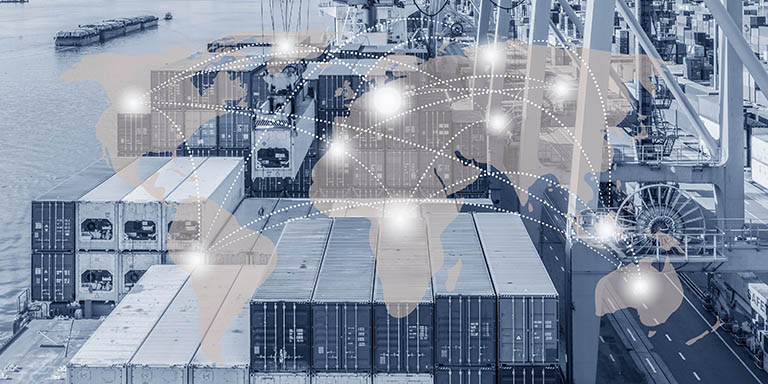
The COVID-19 outbreak has led countries worldwide to re-examine their supply chains and trading relationships. This global transformation could put corporate social responsibility (CSR) on the back-burner but amfori, a global business association dedicated to promoting open and sustainable trade, warns that this is the time to put CSR at the top of priority lists.Comprising more than 2,400 retailers, importers, brands and organisations from over 40 countries, the 43-year-old Brussels-headquartered association is calling for responsible purchasing practices and better supply-chain management to overcome challenges posed by the pandemic which, it notes, has not only disrupted social and economic activity and international trade, but also exposed the weaknesses and lack of cooperation along the global supply chain. “In such a challenging time, the fulfilment of CSR is needed more than ever, so as to sustain the global supply chain and international trade,” amfori President Christian Ewert said.How did the COVID-19 outbreak impact supply chains?
As “the worst global crisis since World War Two” per International Labour Organisation, the COVID-19 outbreak has a devastating impact on all walks of life, results of a survey conducted by amfori in April to assess the impact of COVID-19 on supply chains show. More than 160 member companies from 17 countries and over 400 producers from the top 10 global sourcing nations, mainly situated in the Asia-Pacific, responded. The top COVID-19-related challenges cited were the cancellation or reduction of orders due to decreased consumer demand, blocked or delayed shipments because of logistics system controls, and suspension of operations. Meanwhile, cash flow was seen as the biggest internal challenge.What has the impact been on workers?
According to the International Labour Organization’s estimates, order cancellations, increased lay-offs, salary payment delays, reductions in wages and working hours, business closures and potential health risks at workplaces have affected more than 1.25 billion workers worldwide, with an additional 2 billion informal-sector workers also at risk. How can businesses recover without endangering supply chains or staff?
For many businesses, their primary concern will be to stay afloat. While we understand and strive to support them where possible, we also do call upon businesses to do their utmost to continue with due diligence, and specifically to carry out responsible purchasing practices. To support these efforts, amfori has prepared guidelines for businesses to share and implement.Companies should carefully consider all potential ramifications in the supply chain when making purchasing decisions. This includes seemingly minor purchasing decisions, which may in fact have a domino effect on the value chain. Effective communication channels with producers and intermediaries as well as trade unions and civil society groups will be crucial to understanding any possible negative impacts, and collaborative dialogue will provide for mutually acceptable solutions.
What consequences do companies face if they cut corners while recovering?
Companies are likely to face scrutiny on purchasing practices, and criticism should they, for example, trigger force majeure clauses to halt payments to business partners. Ultimately, non-responsible business practices will damage a company’s reputation, endangering its social licence to operate.We believe that responsible business conduct is the only way to strengthen business relations during a time of crisis. This not only ensures business continuity where possible but safeguards human rights and enables human prosperity across global supply chains. Indeed, all actors on the global supply chain will need each other. In other words, dialogue, solidarity and collaboration will be key.Is there any sign that businesses will shift away from the Mainland China as a product source?
Despite the trend for suppliers to relocate manufacturing bases from Mainland China, 90% of amfori members who responded to the survey reported “no change” to their sourcing destinations or product types following the outbreak. Most of the respondents source largely from the mainland. The mainland is likely to continue as the world’s leading manufacturing giant after COVID-19 but its position may become less dominant in some industry sectors in terms of global trade. Many companies will also look for suppliers that are geographically closer to their retail outlets, reducing the risk of a supply shock induced by political, environmental or health-related events. American firms, for instance, may source more from Mexico while European enterprises may, depending on their location, look to Turkey or Morocco.No matter where your sourcing destination is, it is important to do supply network mapping as a risk-mitigation strategy. Getting to know exactly which suppliers, sites, parts, and products are at risk will allow businesses to put themselves first in line to secure constrained inventory and capacity at backup sites, rather than relying on one source. Yes, mapping your supply chains can be difficult and resource-intensive, but you will soon discover the value of the outcome more than justifies the cost and time spent.Companies that had invested in mapping their supply networks before COVID-19 broke out are better prepared to cope with the pandemic. Instead of scrambling at the last minute, they have a good deal of information at their fingertips enabling them to activate mitigating measures.Do sustainable development goals remain critical in the post-COVID recovery?
Had the world been investing in the [United Nations’] Millennium Development Goals (MDGs) and Sustainable Development Goals (SDGs), it would have been better prepared to withstand shocks. It is an inconvenient truth – the current crisis will have a negative effect on the world’s sustainable-development agenda and its implementation. In the long-term the world will need to double its efforts in delivering the [United Nations’] 2030 Sustainable Development Agenda. With the assurance of inclusive and sustainable economies, post-COVID we will heavily rely on businesses and trade with responsible purchasing practices, which are the key issue to success. Focusing on sustainable development will help companies not only in the long term. In the short run, applying responsible purchasing practices will, for example, help develop inclusive and sustainable economies. Reshaping global supply chains and creating true partnerships between business partners that work together in both good and bad times will be crucial in delivering the progress that is needed.How can global logistics hub Hong Kong strengthen its role as sustainability grows in importance?
As the gateway linking Mainland China to the rest of the global supply chain, Hong Kong has demonstrated resilience in confining the spread of COVID-19. To maintain its competitiveness going forward, the city could further strengthen its sustainability efforts in trade and business through more proactive cooperation with other parts of the Guangdong-Hong Kong-Macao Greater Bay Area. This could ensure the availability of more abundant resources for nurturing and supporting the sustainable growth of businesses in the region.
Related link
amfori

